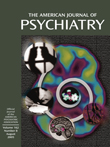Marijuana and Madness
Nothing is more topical nowadays than marijuana. The U.S. Supreme Court is pondering the legality of the so-called medical marijuana laws in several states. Canada has changed its policy on cannabis, following the lead of several European countries. Passions are stirred as these measures are considered. Part of each debate concerns marijuana’s safety, both in the general population and in those who are ill. As mental health and addiction professionals, it behooves us to know as much about this substance as possible, not only as it relates to abuse and dependence, but also as it relates to other mental disorders, especially the psychoses.
A rather small but very timely and useful book, Marijuana and Madness comes to the rescue. It brings together, under one beautifully designed cover, 13 monographs, each summarizing what is known about some aspect of the relationship between marijuana and mental health. Each chapter reviews past and current research relevant to its topic in a clearly presented and persuasive summary. Limitations of the research as well as its findings are stressed. Needs for future research are also noted. Read in sequence, these chapters provide a comprehensive overview of the field.
Topics range from the chemistry of the cannabinoids (presented so that it is readily grasped by the nonchemist), through the mechanisms of action of these substances on the brain, to various aspects of the relationship of marijuana use to psychotic symptoms, to psychosis, and to schizophrenia in particular. Titles of the chapters include “Cannabis and Psychosis Proneness,” “Is There a Specific Cannabis Psychosis?” “Cannabis as a Potential Causal Factor in Schizophrenia,” and “The Endogenous Cannabinoid System in Schizophrenia.” Although every chapter in the book is relevant to the mental health professional and addictions specialist, there are some that have a specific clinical focus, including “Cannabis Abuse and the Course of Schizophrenia,” “Motives That Maintain Cannabis Use in Individuals With Psychotic Disorders,” and “Addressing Cannabis Abuse in People With Psychosis.”
An expert in the field writes each chapter, and the 30 authors come from around the world (the United Kingdom, the United States, Australia, Israel, France, and the Netherlands). The editors of the volume deserve special commendation for making the book easy to read from beginning to end, with appropriate cross-references in each chapter and a uniform style. Perhaps the only helpful addition might have been an overall summary at the end, integrating the information from each of the chapters. Readers are left to do that for themselves.
The editors and publishers of this book have responded to a need for clear, research-based information on a topic of great current concern. They have done an excellent job.



